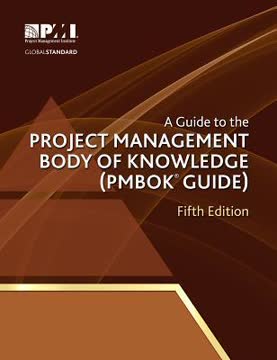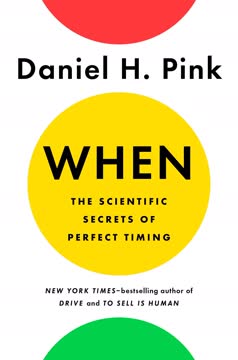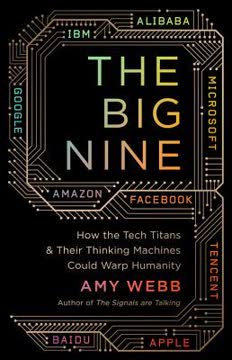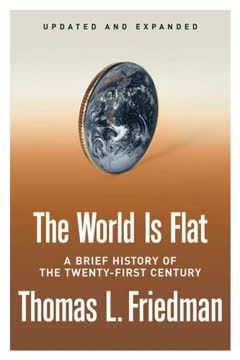Key Takeaways
1. The Age of Accelerations: Technology, Globalization, and Climate Change
We are in a race for our lives, and it's being driven by the simultaneous accelerations in the Market, Mother Nature, and Moore's law.
Three major forces are reshaping our world at an unprecedented pace: technology (Moore's law), globalization (the Market), and climate change (Mother Nature). These accelerations are intertwined and mutually reinforcing, creating a new era of rapid change and disruption.
- Technology: Exponential growth in computing power, AI, and automation
- Globalization: Increased interconnectedness and digital flows of information, goods, and services
- Climate Change: Rising temperatures, extreme weather events, and environmental pressures
The convergence of these forces is creating both opportunities and challenges, requiring individuals, businesses, and societies to adapt quickly to remain resilient and thrive.
2. Moore's Law: The Exponential Growth of Computing Power
If automobile fuel efficiency improved at the same rate as Moore's law, you could, roughly speaking, drive a car your whole life on one tank of gasoline.
Exponential technological growth is transforming every aspect of our lives. Moore's law, which states that computing power doubles approximately every two years, has led to unprecedented advances in technology.
Key impacts of Moore's law:
- Smartphones more powerful than supercomputers of the past
- AI and machine learning capabilities previously thought impossible
- Rapid developments in robotics, biotechnology, and nanotechnology
This exponential growth is enabling new innovations across industries, from healthcare to transportation, and is fundamentally changing how we work, communicate, and live.
3. The Market: Globalization and Digital Flows Reshape Economics
Digital flows—transmitting information, ideas, and innovation around the world and broadening participation in the global economy—are soaring.
Digital globalization is creating a new era of interconnectedness. The flow of data, ideas, and digital services across borders is reshaping the global economy and creating new opportunities for individuals and businesses.
Key aspects of digital globalization:
- Rise of digital platforms enabling global commerce and communication
- Increased access to education and information for billions of people
- New business models and opportunities for entrepreneurs worldwide
This shift is democratizing access to global markets and knowledge, but also creating challenges related to job displacement, privacy, and cybersecurity.
4. Mother Nature: Climate Change and Environmental Pressures
We are the first generation for whom "later" will be the time when all of Mother Nature's buffers, spare tires, tricks of the trade, and tools for adapting and bouncing back will be exhausted or breached.
Environmental challenges are becoming increasingly urgent. Climate change, biodiversity loss, and resource depletion are putting unprecedented pressure on natural systems and human societies.
Key environmental concerns:
- Rising global temperatures and extreme weather events
- Loss of biodiversity and ecosystem services
- Depletion of natural resources and topsoil
Addressing these challenges requires a fundamental shift in how we interact with the environment, from sustainable energy and agriculture to conservation and restoration efforts.
5. Innovating in the Age of Accelerations: Adapting to Rapid Change
In the age of accelerations, the new rule is: Whatever can be done will be done. The only question is will it be done by you or to you.
Rapid adaptation is crucial for success in the age of accelerations. Individuals, businesses, and societies must embrace innovation and lifelong learning to thrive in a constantly changing environment.
Strategies for innovation and adaptation:
- Cultivating a growth mindset and embracing change
- Developing cross-disciplinary skills and knowledge
- Leveraging technology to solve complex problems
Those who can quickly learn, unlearn, and relearn will be best positioned to succeed in this new era of rapid change and disruption.
6. The Workplace Revolution: AI, Automation, and Lifelong Learning
Average is officially over. When I graduated from college I got to find a job; my girls have to invent theirs.
The future of work is being radically reshaped by AI, automation, and the gig economy. Traditional career paths are disappearing, and new opportunities are emerging that require different skills and mindsets.
Key trends in the changing workplace:
- Automation of routine tasks and rise of AI-augmented work
- Increased emphasis on creativity, emotional intelligence, and problem-solving
- Growing importance of lifelong learning and adaptability
To succeed in this new landscape, individuals must continuously update their skills, embrace entrepreneurial thinking, and be prepared to reinvent themselves throughout their careers.
7. Geopolitics in Flux: Order vs. Disorder in a Fast-Changing World
In the post–post–Cold War world, as it is being reshaped by the age of accelerations, your allies—such as Greece—can now kill you faster than your enemies.
Global power dynamics are shifting rapidly in the age of accelerations. Traditional geopolitical frameworks are being challenged by new forms of conflict, cooperation, and interdependence.
Emerging geopolitical trends:
- Rise of non-state actors and super-empowered individuals
- Increasing importance of digital and economic power over military might
- Growing tensions between globalization and nationalism
Navigating this complex landscape requires a nuanced understanding of interconnected global systems and the ability to build flexible, adaptive alliances.
8. Reimagining Politics: Resilience and Adaptability in Governance
The only way to steer is to paddle as fast as or faster than the rate of change in technology, globalization, and the environment.
Political systems must evolve to address the challenges of the age of accelerations. Traditional left-right ideologies are becoming less relevant as new issues emerge that require innovative, adaptive approaches.
Key elements of adaptive governance:
- Embracing experimentation and evidence-based policymaking
- Fostering collaboration between government, business, and civil society
- Developing agile regulatory frameworks that can keep pace with technological change
Successful political leaders will need to balance the need for stability with the imperative to adapt to rapidly changing circumstances.
9. Mother Nature as Political Mentor: Lessons from Ecosystems
If we are evolving to be more like nature, we better damn well get good at it.
Natural systems offer valuable lessons for building resilient societies. By studying how ecosystems adapt and thrive in changing environments, we can develop more effective strategies for human organizations and communities.
Key lessons from nature:
- Embracing diversity and fostering healthy interdependencies
- Balancing competition and cooperation
- Developing adaptive, decentralized systems
Applying these principles to human societies can help create more resilient, sustainable, and innovative communities better equipped to navigate the challenges of the age of accelerations.
10. Cultural Adaptation: Embracing Change and Diversity
We have to surprise them with compassion, with restraint and generosity.
Cultural flexibility is crucial for thriving in a rapidly changing world. Societies that can embrace diversity, adapt to new ideas, and foster a culture of innovation will be best positioned to succeed in the age of accelerations.
Key aspects of cultural adaptation:
- Cultivating openness to new ideas and ways of thinking
- Fostering empathy and cross-cultural understanding
- Balancing tradition with the need for change and innovation
Leaders who can inspire cultural adaptation while maintaining social cohesion will be essential in navigating the complex challenges of the 21st century.
Last updated:
FAQ
What's Thank You for Being Late about?
- Exploration of Accelerations: The book examines the simultaneous accelerations in technology, globalization, and climate change, which are reshaping societies and economies. Friedman refers to this period as the "age of accelerations."
- Importance of Reflection: Friedman emphasizes the need to pause and reflect amidst rapid change, suggesting that understanding these transformations can help individuals and societies adapt better.
- Personal Stories and Insights: The narrative includes personal anecdotes and reflections, illustrating broader themes through relatable experiences and emphasizing the importance of community and trust.
Why should I read Thank You for Being Late?
- Understanding Modern Challenges: The book provides a framework for understanding the complexities of the modern world, making it essential for navigating today’s fast-paced environment.
- Optimistic Perspective: Despite the challenges, Friedman maintains an optimistic outlook, encouraging readers to embrace change and find opportunities within it.
- Practical Advice: Offers practical advice on thriving in an age of accelerations, emphasizing adaptability, continuous learning, and building trust in relationships.
What are the key takeaways of Thank You for Being Late?
- Age of Accelerations: Identifies the current era as one where technology, globalization, and climate change are reshaping human experiences and interactions.
- Power of Pausing: Advocates for the necessity of pausing to reflect, which can lead to better understanding and engagement with the world.
- Interconnectedness of Global Flows: Highlights how digital flows of information, finance, and culture are increasingly interconnected, impacting societies globally.
What are the best quotes from Thank You for Being Late and what do they mean?
- “Nothing in life is to be feared, it is only to be understood.”: Encourages seeking knowledge and clarity in a rapidly changing world to reduce fear and anxiety.
- “Complexity is free.”: Illustrates how advancements in technology have made it easier to manage complex tasks and processes, signifying a shift towards simplifying operations through innovation.
- “We live as human beings in a linear world—where distance, time, and velocity are linear.”: Emphasizes the contrast between human perception and the exponential growth of technology.
How does Thomas L. Friedman define the "Machine" in Thank You for Being Late?
- The Machine Concept: Describes "the Machine" as the interplay of technology, globalization, and climate change that drives societal transformation.
- Interconnected Forces: Argues that these forces interact and amplify each other, creating a dynamic environment that requires new ways of thinking and operating.
- Implications for Society: The Machine's influence extends to various aspects of life, necessitating a reevaluation of how individuals and institutions respond to change.
How does technology play a role in Thank You for Being Late?
- Accelerating Change: Portrayed as a primary driver of change, reshaping industries, economies, and personal lives at an unprecedented pace.
- Exponential Growth: Discusses how technology follows an exponential growth pattern, leading to rapid advancements that can overwhelm individuals and societies.
- Impact on Human Interaction: Alters the way people connect and communicate, facilitating global interactions while presenting risks such as misinformation and polarization.
How does Friedman suggest we cope with the rapid changes discussed in Thank You for Being Late?
- Embrace Reflection: Advocates for taking time to pause and reflect on the changes occurring around us, leading to deeper understanding and better decision-making.
- Continuous Learning: Emphasizes the importance of lifelong learning and adaptability, encouraging readers to stay informed and open to new ideas.
- Building Trust: Stresses the need for trust in relationships as a foundation for navigating change, enhancing collaboration and fostering resilience.
What is the significance of the year 2007 in Thank You for Being Late?
- Technological Inflection Point: Identifies 2007 as a pivotal year when several key technologies converged, marking the beginning of the age of accelerations.
- Emergence of the Supernova: Introduces the concept of the "supernova," representing the explosive growth of technology and its impact on society.
- Cultural Shifts: The events and innovations of 2007 set the stage for cultural shifts in communication, commerce, and social interaction.
How does Friedman view globalization in Thank You for Being Late?
- Globalization as Flows: Expands the definition of globalization beyond trade to include the flow of information, ideas, and culture.
- Interdependence: Highlights the increasing interdependence of nations and individuals, emphasizing that actions in one part of the world can have far-reaching consequences elsewhere.
- Empowerment through Connectivity: Believes that globalization, fueled by technology, empowers individuals and small businesses to participate in the global economy.
How does Thank You for Being Late address climate change?
- Climate as a Global Challenge: Discusses climate change as one of the three major forces driving the age of accelerations, alongside technology and globalization.
- Interconnectedness with Technology: Explores how technological advancements can both contribute to and help mitigate climate change.
- Call for Action: Urges readers to recognize the importance of sustainability and environmental stewardship in the face of rapid change.
How does Friedman connect technology and globalization in Thank You for Being Late?
- Interconnectedness of Forces: Illustrates how technology and globalization are interconnected forces that shape modern life.
- Impact on Work: Discusses how these forces are transforming the workplace, requiring individuals to adapt and acquire new skills.
- Cultural Exchange: Highlights the positive aspects of globalization, such as cultural exchange and collaboration, while acknowledging the challenges it presents.
How does Thank You for Being Late propose to address the challenges of the age of accelerations?
- Emphasizing Collaboration: Advocates for collaboration between individuals, communities, and institutions to tackle the challenges posed by rapid change.
- Fostering Inclusivity: Stresses the importance of inclusivity in building strong communities, enhancing problem-solving and creativity.
- Encouraging Lifelong Learning: Emphasizes the need for continuous education and skill development to thrive in the age of accelerations.
Review Summary
Thank You for Being Late explores three accelerating forces: technology, globalization, and climate change. Friedman argues these rapid changes outpace human adaptation, causing societal stress. He proposes building resilient communities and lifelong learning as solutions. While some readers praise Friedman's insights and optimism, others criticize his writing style and repetitiveness. The book's final section on Friedman's Minnesota upbringing receives mixed reactions, with some finding it nostalgic and others irrelevant. Overall, readers appreciate Friedman's attempt to explain complex global issues, despite occasional oversimplification.
Similar Books









Download PDF
Download EPUB
.epub digital book format is ideal for reading ebooks on phones, tablets, and e-readers.





